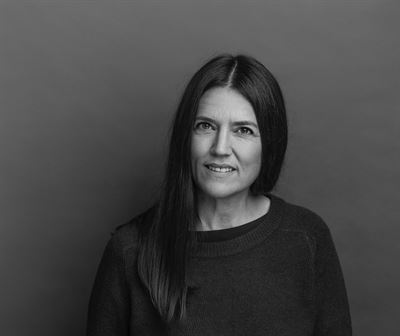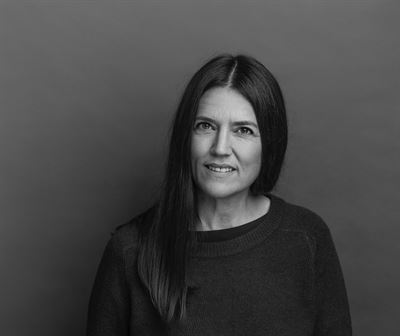Marknadsnyheter
Enhertu approved in China for patients with previously treated HER2-positive advanced or metastatic gastric cancer
Approval based on DESTINY-Gastric06 results which showed Enhertu demonstrated clinically meaningful efficacy in this setting. Third approval in China for AstraZeneca and Daiichi Sankyo’s Enhertu in less than two years.
AstraZeneca and Daiichi Sankyo’s Enhertu (trastuzumab deruxtecan) has received conditional approval in China as a monotherapy for the treatment of adult patients with locally advanced or metastatic HER2-positive gastric or gastroesophageal junction (GEJ) adenocarcinoma who have received two or more prior treatment regimens.
The conditional approval by the National Medical Products Administration (NMPA) was based on the positive results of the DESTINY-Gastric06 Phase II trial. Full approval for this indication will depend on whether a randomised controlled confirmatory clinical trial can demonstrate clinical benefit in this population.
Enhertu is a specifically engineered HER2-directed antibody drug conjugate (ADC) discovered by Daiichi Sankyo and being jointly developed and commercialised by AstraZeneca and Daiichi Sankyo.
In the DESTINY-Gastric06 trial, Enhertu demonstrated clinically meaningful efficacy in patients in China with locally advanced or metastatic HER2-positive gastric or GEJ adenocarcinoma previously treated with two or more prior regimens including a fluoropyrimidine agent and a platinum agent.
More than one third of the global cases of gastric cancer occur in China, with about 65% of patients presenting with advanced disease at the time of diagnosis.1-3 Approximately 359,000 new cases of gastric cancer and 260,000 deaths were reported in China in 2022.1 Roughly one in five gastric cancers globally are HER2-positive.4,5
Lin Shen, MD, Director of the Department of Gastrointestinal Oncology, Peking University Cancer Hospital, China, said: “HER2-positive metastatic gastric cancer can be particularly aggressive and difficult to treat. Patients often face poor outcomes following disease progression on first-line treatment and subsequent chemotherapy. With the approval of Enhertu, patients in China with HER2-positive metastatic gastric cancer will now have an important anti-HER2 treatment option that has demonstrated clinically meaningful efficacy following progression on previous therapies.”
Dave Fredrickson, Executive Vice President, Oncology Business Unit, AstraZeneca, said: “China accounts for more than a third of patients with gastric cancer globally and most patients are diagnosed with advanced disease. This approval of Enhertu brings a much-needed, new targeted treatment option to patients with HER2-positive metastatic gastric cancer in China and underscores our commitment to bringing this innovative medicine to more patients across the globe living with HER2-expressing cancers.”
Kiminori Nagao, Head of the Asia, South & Central America Business Unit, Daiichi Sankyo, said: “This milestone marks the third approval in China for Enhertu in less than two years, following approvals for HER2-positive metastatic breast cancer and HER2-low metastatic breast cancer. Our DESTINY clinical trial programme continues to reinforce Enhertu as a practice-changing treatment option for patients with HER2-expressing cancers and this latest approval in China further illustrates the global impact of this innovative antibody drug conjugate.”
In DESTINY-Gastric06, treatment with Enhertu (6.4mg/kg) resulted in a confirmed objective response rate (ORR) of 28.8% as assessed by independent central review. Median progression-free survival (PFS) was 5.7 months.
The safety profile of Enhertu in DESTINY-Gastric06 was consistent with previous clinical trials of Enhertu in gastric cancer with no new safety concerns identified.
The approval was also supported by results from the DESTINY-Gastric01 Phase II trial which included patients from Japan and South Korea. In the trial, patients with HER2-positive metastatic gastric cancer treated with Enhertu showed a statistically significant improvement in confirmed ORR (40.5% with Enhertu versus 11.3% with chemotherapy; p<0.0001) and median overall survival (OS) (12.5 months with Enhertu versus 8.4 months with chemotherapy; hazard ratio [HR] 0.59; 95% confidence interval [CI] 0.39-0.88; p=0.0097).
Enhertu is already approved for advanced or metastatic gastric cancer in more than 45 countries, including the US, Japan and across the EU.
Notes
HER2-positive gastric cancer
Gastric (stomach) cancer is the fifth most common cancer worldwide and the fifth leading cause of cancer-related death, with a five-year global survival rate of 5% to 10% for advanced or metastatic disease.2,6 Approximately one million new patients were diagnosed with gastric cancer in 2022, with more than 660,000 deaths reported globally.2
Incidence rates for gastric cancer are markedly higher in eastern Asia, particularly in China where more than one third of all global cases occur.1,2 Gastric cancer is the fifth most common cancer in China with about 359,000 new cases diagnosed in 2022.1 Additionally, it is the third leading cause of cancer-related death in China with approximately 260,000 deaths reported in 2022.1 Approximately 65% of patients in China present with advanced disease at the time of diagnosis.3
Approximately one in five gastric cancers globally are HER2-positive.4,5 HER2 is a tyrosine kinase receptor growth promoting protein expressed on the surface of many types of tumours, including gastric cancer.5
Recommended first-line treatment in China for HER2-positive advanced or metastatic gastric cancer is combination chemotherapy and trastuzumab, an anti-HER2 medicine, with or without pembrolizumab.7 For patients that progress following initial treatment with a trastuzumab-based regimen, subsequent anti-HER2 treatment options are limited.7
DESTINY-Gastric06
DESTINY-Gastric06 is an open-label, single-arm Phase II trial in China evaluating the safety and efficacy of Enhertu (6.4mg/kg) in patients with HER2-positive locally advanced or metastatic gastric or GEJ adenocarcinoma previously treated with two or more prior regimens including a fluoropyrimidine agent and a platinum agent.
The primary endpoint is confirmed ORR by independent central review. Secondary endpoints include investigator-assessed ORR, PFS, duration of response (DoR), disease control rate (DCR), OS and safety.
DESTINY-Gastric06 enrolled 95 patients at multiple sites in China. For more information about the trial, visit clinicaltrials.gov.
DESTINY-Gastric01
DESTINY-Gastric01 is a Phase II, open-label, multi-centre, randomised controlled trial testing the safety and efficacy of Enhertu (6.4mg/kg) versus investigator’s choice of chemotherapy in a primary cohort of patients from Japan and South Korea with HER2-positive locally advanced or metastatic gastric or GEJ adenocarcinoma who have progressed on at least two or more prior regimens including trastuzumab plus a fluoropyrimidine- and platinum-based chemotherapy combination.
Patients (n=188) were randomised 2:1 to receive Enhertu or physician’s choice of chemotherapy (paclitaxel or irinotecan monotherapy).
The primary endpoint is ORR assessed by independent central review. OS is a key secondary endpoint. Additional secondary endpoints include PFS, DoR, disease control rate and safety.
Enhertu
Enhertu is a HER2-directed ADC. Designed using Daiichi Sankyo’s proprietary DXd ADC technology, Enhertu is the lead ADC in the oncology portfolio of Daiichi Sankyo and the most advanced programme in AstraZeneca’s ADC scientific platform. Enhertu consists of a HER2 monoclonal antibody attached to a number of topoisomerase I inhibitor payloads (an exatecan derivative, DXd) via tetrapeptide-based cleavable linkers.
Enhertu (5.4mg/kg) is approved in more than 65 countries worldwide for the treatment of adult patients with unresectable or metastatic HER2-positive (IHC 3+ or in-situ hybridization [ISH]+) breast cancer who have received a prior anti-HER2-based regimen, either in the metastatic setting or in the neoadjuvant or adjuvant setting, and have developed disease recurrence during or within six months of completing therapy based on the results from the DESTINY-Breast03 trial.
Enhertu (5.4mg/kg) is approved in more than 65 countries worldwide for the treatment of adult patients with unresectable or metastatic HER2-low (IHC 1+ or 2+/ISH-) breast cancer who have received a prior systemic therapy in the metastatic setting or developed disease recurrence during or within six months of completing adjuvant chemotherapy based on the results from the DESTINY-Breast04 trial.
Enhertu (5.4mg/kg) is approved in more than 35 countries worldwide for the treatment of adult patients with unresectable or metastatic NSCLC whose tumours have activating HER2 (ERBB2) mutations, as detected by a locally or regionally approved test, and who have received a prior systemic therapy based on the results from the DESTINY-Lung02 trial. Continued approval in the US for this indication may be contingent upon verification and description of clinical benefit in a confirmatory trial.
Enhertu (6.4mg/kg) is approved in more than 45 countries worldwide for the treatment of adult patients with locally advanced or metastatic HER2-positive (IHC 3+ or 2+/ISH+) gastric or GEJ adenocarcinoma who have received a prior trastuzumab-based regimen based on the results from the DESTINY-Gastric01, DESTINY-Gastric02 and/or DESTINY-Gastric06 trials. Full approval in China for this indication will depend on whether the randomised controlled confirmatory clinical trial can demonstrate clinical benefit in this population.
Enhertu (5.4mg/kg) is approved in the US for the treatment of adult patients with unresectable or metastatic HER2-positive (IHC 3+) solid tumours who have received prior systemic treatment and have no satisfactory alternative treatment options based on efficacy results from the DESTINY-PanTumor02, DESTINY-Lung01 and DESTINY-CRC02 trials. Continued approval in the US for this indication may be contingent upon verification and description of clinical benefit in a confirmatory trial.
Enhertu development programme
A comprehensive global clinical development programme is underway evaluating the efficacy and safety of Enhertu monotherapy across multiple HER2-targetable cancers. Trials in combination with other anti-cancer treatments, such as immunotherapy, also are underway.
Daiichi Sankyo collaboration
AstraZeneca and Daiichi Sankyo entered into a global collaboration to jointly develop and commercialise Enhertu in March 2019 and datopotamab deruxtecan in July 2020, except in Japan where Daiichi Sankyo maintains exclusive rights for each ADC. Daiichi Sankyo is responsible for the manufacturing and supply of Enhertu and datopotamab deruxtecan.
AstraZeneca in oncology
AstraZeneca is leading a revolution in oncology with the ambition to provide cures for cancer in every form, following the science to understand cancer and all its complexities to discover, develop and deliver life-changing medicines to patients.
The Company’s focus is on some of the most challenging cancers. It is through persistent innovation that AstraZeneca has built one of the most diverse portfolios and pipelines in the industry, with the potential to catalyse changes in the practice of medicine and transform the patient experience.
AstraZeneca has the vision to redefine cancer care and, one day, eliminate cancer as a cause of death.
AstraZeneca
AstraZeneca (LSE/STO/Nasdaq: AZN) is a global, science-led biopharmaceutical company that focuses on the discovery, development, and commercialisation of prescription medicines in Oncology, Rare Diseases, and BioPharmaceuticals, including Cardiovascular, Renal & Metabolism, and Respiratory & Immunology. Based in Cambridge, UK, AstraZeneca’s innovative medicines are sold in more than 125 countries and used by millions of patients worldwide. Please visit astrazeneca.com and follow the Company on social media @AstraZeneca.
Contacts
For details on how to contact the Investor Relations Team, please click here. For Media contacts, click here.
References
- WHO. International Agency of Cancer Research. Cancer Today. China. 2022. Available at: https://gco.iarc.who.int/media/globocan/factsheets/populations/160-china-fact-sheet.pdf. Accessed August 2024.
- WHO. International Agency of Cancer Research. Cancer Today. Stomach. 2022. Available at: https://gco.iarc.who.int/media/globocan/factsheets/cancers/7-stomach-fact-sheet.pdf. Accessed August 2024.
- Zeng H, et al. Disparities in stage at diagnosis for five common cancers in China: a multicentre, hospital-based, observational study. Lancet Public Health. 2021; Dec;6(12):e877-e887.
- Iqbal N, et al. Human Epidermal Growth Factor Receptor 2 (HER2) in Cancers: Overexpression and Therapeutic Implications. Mol Biol Int. 2014; 852748.
- Abrahao-Machado LF, et al. HER2 testing in gastric cancer: An update. World J Gastroenterol. 2016;22(19):4619-4625.
- Casamayor M, et al. Targeted literature review of the global burden of gastric cancer. Ecancermedicalscience. 2018;12:883.
- Wang F, et al. The Chinese Society of Clinical Oncology (CSCO): Clinical guidelines for the diagnosis and treatment of gastric cancer, 2023. Cancer Commun (Lond). 2024 Jan;44(1):127-172
Marknadsnyheter
Regeringen föreslår lättnader i byggkraven för studentbostäder
Regeringen har beslutat om en lagrådsremiss med förslag till lättnader i byggkraven för studentbostäder. Syftet är att öka möjligheterna till flexibilitet vid byggandet.
– På många studieorter är det svårt för studenter att hitta boende. Därför behöver byggregelverket förenklas. Syftet är att möjliggöra för fler studentbostäder genom sänkta byggkostnader och ökad flexibilitet, säger infrastruktur- och bostadsminister Andreas Carlson.
Förslaget innebär att det blir möjligt att göra undantag från kraven på tillgänglighet och användbarhet i en byggnad som innehåller studentbostäder. Undantagen ska kunna tillämpas vid både nyproduktion och vid ändring av en byggnad.
Det ska vara möjligt att göra undantag för högst 80 procent av studentbostäderna i ett byggprojekt. Minst 20 procent av studentbostäderna ska fortfarande uppfylla gällande krav på tillgänglighet och användbarhet för personer med nedsatt rörelse- eller orienteringsförmåga.
Lagändringen ger större flexibilitet vid byggande av studentbostäder och skapar fler tänkbara sätt att utforma planlösningar. Till exempel kan bostadsytan minskas och fler bostäder rymmas inom en given yta.
De föreslagna undantagen ska inte hindra personer med funktionsnedsättning att vara delaktiga i sociala sammanhang. En studentbostad som omfattas av undantagen ska kunna besökas av en person med nedsatt rörelse- eller orienteringsförmåga.
Regeringen breddar också definitionen av studentbostäder till att inkludera all vuxenutbildning för att göra det möjligt för fler kommuner att erbjuda studentbostäder.
Förslagen föreslås träda i kraft den 1 juli 2025.
Lagrådsremissen: Lättnader i byggkraven för studentbostäder – Regeringen.se
Presskontakt
Ebba Gustavsson
Pressekreterare hos infrastruktur- och bostadsminister Andreas Carlson
Telefon (växel) 08-405 10 00
Mobil 076-12 70 488
ebba.gustavsson@regeringskansliet.se
Marknadsnyheter
“Vi behöver tillsammans enas om vettiga avtal, som sätter standard för branschen”


Sveriges Radios Kulturnytt gör just nu en mycket välkommen granskning av villkoren i musikbranschen. Igår lyftes artisten Siw Malmkvists situation med ett avtal som inte förnyats på över 60 år. Hennes situation är tyvärr långt ifrån unik. Musikerförbundet har länge uppmärksammat att majorbolagen fortsätter att betala extremt låga royaltynivåer till artister vars kontrakt skrevs på 1960-talet – en tid då digital streaming inte existerade.
– Jag kan intyga att artisterna som talar ut i P1 är långt ifrån ensamma om sin situation och vi uppmanar deras artistkollegor att gå ut med sitt tydliga stöd till de som vågar bryta tystnaden om oskäliga ersättningar, säger Musikerförbundets ordförande Karin Inde.
Musiker och artister skapar det värde som skivbolagen tjänar pengar på, men ändå ser vi gång på gång hur bolagen behåller stora delar av intäkterna. Att en av Sveriges mest folkkära artister, med en karriär som sträcker sig över decennier, fortfarande har en oskälig royalty är ett tydligt bevis på branschens obalans.
– Tystnadskulturen kring prissättning är enbart bra för bolagen. Både artister och musiker skulle verkligen tjäna på att dela med sig till varandra om hur betalningar och dealar verkligen ser ut. Förstås i trygga, egna rum. Det är bara bolagen som tjänar på att vi inte pratar med varandra om pengar, säger Karin Inde.
Stort tack till de modiga artister som ser till att lyfta problematiken! För att vi ska få till en i grunden mer rättvis musikbransch behöver de stora parterna i sammanhanget – skivbolagen, musikerna och artisterna – göra som de flesta andra svenska branscher lyckas med:
– Vi behöver tillsammans enas om vettiga och balanserade avtal, som sätter standard för branschen. Musikerförbundet är redo att göra vår del i arbetet för bättre villkor i musikbranschen, frågan är om skivbolagen är redo, säger Karin Inde.
Karin Inde
Förbundsordförande
karin.inde@musikerforbundet.se
+46 (0)704447228
Musikerförbundet är fackförbundet för professionella musiker och artister. Vi arbetar för förbättrade upphovsrättsliga och arbetsrättsliga villkor och för att våra medlemmar ska få en rättvis del av de värden de skapar i samhället.
Marknadsnyheter
Bönor från egen kaffeskog, sump till jord – Viking Lines nya kaffe gör gott på många olika sätt


Viking Lines resenärer dricker varje år 8,5 miljoner koppar kaffe. Nu satsar rederiet på ett helt nytt kaffe som ger minskade klimatutsläpp och bättre levnadsvillkor för odlarna. Kaffet från Slow Forest odlas på rederiets egen odling i Laos utan kemiska gödningsmedel, handplockas och rostas därefter i Danmark.
Allt kaffe som serveras på Viking Lines fartyg är nu hållbart producerat Slow Forest-kaffe, odlat på rederiets 75 hektar stora odling på högplatåerna i Laos och rostat i Danmark. Kaffeplantorna odlas bland träd på återbeskogad mark, i stället för på traditionellt skövlade plantager. Viking Lines odling ligger i en kolsänka där målsättningen är att plantera 30 000 träd, vilket innebär nästan 400 träd per hektar. Kaffeskogen förbättrar också den lokala biologiska mångfalden i området.
Odlingen, bearbetningen och rostningen av kaffet hanteras av Slow Forest Coffee. För företaget är det viktigt att produktionskedjan är rättvis och transparent. Utöver miljöfördelarna erbjuder Slow Forest bättre lönevillkor och sjukersättning för byns odlare.
”Den traditionella kaffetillverkningens koldioxidavtryck är stort och merparten av intäkterna går till Europa i stället för produktionsländerna. Vi ville göra annorlunda. Våra kunder vill göra hållbara val, och nu kan de njuta av sitt kaffe med bättre samvete än någonsin tidigare,” berättar Viking Lines restaurangchef Janne Lindholm.
Bönorna till Slow Forest-kaffet får sakta mogna i skuggan av träden, utan kemiska gödningsmedel. De plockas också för hand, vilket avsevärt förbättrar kaffets kvalitet och smak. Viking Lines nya kaffe består till 100 procent av Arabica-bönor, med en balanserad syrlighet samt smak av nötter och choklad. Rostningsprofilen har skapats av den världsberömda danska rostningsmästaren Michael de Renouard.
”Vi valde en mörkrost till fartygets kaffe, vilket passar både finländarnas och svenskarnas nuvarande smakpreferenser gällande rostning. Finländarnas smak gällande kaffe har under de senaste åren utvecklats mot en mörkare rostning. Innan vi gjorde vårt slutgiltiga val testades det nya kaffet i Viking Cinderellas bufférestaurang och personalmässen – och båda testgrupperna gav toppbetyg. Då 8,5 miljoner koppar kaffe bryggs varje år kan inget lämnas åt slumpen!” säger Janne Lindholm.
Viking Lines hållbarhetsmål stannar inte vid produktionskedjan. Kaffesump från fartygen återvinns nämligen som råmaterial för trädgårdsjord. Detta minskar avsevärt användningen av jungfrulig torv vid tillverkningen av mylla.
”Vi har som mål att allt som tagits ombord på fartygen som är möjligt att återvinna ska återanvändas eller återvinnas. Det gäller inte bara kaffet utan även matavfall och till exempel textilier som tas ur bruk. Ett bra exempel på vårt livscykeltänkande är att frityrolja från fartygets restauranger blir till biobränsle för den finska sjöfartsindustrin,” säger Viking Lines hållbarhetschef Dani Lindberg.
Slow Forest Coffee – 5 fakta:
- Slow Forest Coffee är ett kaffeföretag som verkar i Laos, Vietnam och Indonesien i samarbete med över 500 lokala kaffeodlare.
- Företaget grundades år 2019 av Pinja Puustjärvi, driven av en vilja att skydda skogarna i Laos och stötta lokala odlare. Puustjärvi bodde som barn i Laos på grund av sin fars arbete.
- Kaffet odlas i restaurerade kaffeskogar, som binder stora mängder kol och ökar den biologiska mångfalden.
- Det är viktigt för företaget att produktionskedjan är ansvarsfull och transparent, samt att verksamheten gynnar både miljön och de lokala samhällena.
- Slow Forest Coffee betalar odlarna bättre ersättning än genomsnittet i Laos och erbjuder förmåner som underlättar deras liv: förskottsbetalningar, utbildning och möjligheten att låna pengar från en krisfond.
Mera infomation om Slow Forest Coffee här
Tilläggsinformation:
Janne Lindholm, restaurangchef
janne.lindholm@vikingline.com, tel. +358 400 744 806
Dani Lindberg, hållbarhetschef
dani.lindberg@vikingline.com, tel. +358 18 27 000
Johanna Boijer-Svahnström, informationsdirektör
johanna.boijer@vikingline.com, tel. +358 18 270 00
Christa Grönlund, informationschef
christa.gronlund@vikingline.com, tel. +358 9 123 51
-
Analys från DailyFX10 år ago
EUR/USD Flirts with Monthly Close Under 30 Year Trendline
-

 Marknadsnyheter2 år ago
Marknadsnyheter2 år agoUpptäck de bästa verktygen för att analysera Bitcoin!
-
Marknadsnyheter5 år ago
BrainCool AB (publ): erhåller bidrag (grant) om 0,9 MSEK från Vinnova för bolagets projekt inom behandling av covid-19 patienter med hög feber
-
Analys från DailyFX12 år ago
Japanese Yen Breakout or Fakeout? ZAR/JPY May Provide the Answer
-

 Marknadsnyheter2 år ago
Marknadsnyheter2 år agoDärför föredrar svenska spelare att spela via mobiltelefonen
-
Analys från DailyFX12 år ago
Price & Time: Key Levels to Watch in the Aftermath of NFP
-
Analys från DailyFX8 år ago
Gold Prices Falter at Resistance: Is the Bullish Run Finished?
-

 Nyheter7 år ago
Nyheter7 år agoTeknisk analys med Martin Hallström och Nils Brobacke

